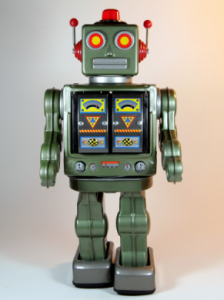In the middle of Google Headquarters, something unbelievable — and almost science fiction-like — is occurring. Robots are studying human beings. They are memorizing the ways in which humans interact, perform mundane tasks, eat, drink, sleep, entertain themselves with household and other tech objects — everything we do on a daily basis.
However, this is not a part of an elaborate scheme to take away jobs from human employees, nor a plot to integrate artificial intelligence bots into our society. On the contrary, Google researchers are merely training these artificial intelligence bots to better identify and respond to human actions and interactions.
In the past, Google researchers have made extraordinary breakthroughs in the development and improvement of artificial intelligence. However, every version of every bot has struggled with completing the same tasks: identifying and classifying objects, humans, and the ways in which other humans interact with members of those categories.
With that fact in mind, Google has implemented an intriguing method of educating their bots to more effectively and efficiently identify human interaction — a tactic that entails hours of binge-watching movies.
Over the past several years, researchers have curated a catalog of over 57,000 movie clips — which feature over 96,000 human beings in total — from around the globe. Throughout any given day, these artificial intelligence bots go through the catalog and practice identifying and categorizing different actions and interactions.
Thanks to this method, the bots are getting a clearer picture of human interaction than ever before. This is because human action and interaction is less clear and identifiable in real time than it is in productions, hence why the bots have struggled so greatly to categorize them while observing live subjects.
Now, if this experiment gives Google’s researchers the results they so desire, it may not only improve the bots’ abilities to recognize human action and interaction, but eventually realize the purpose of their actions, as well as the goals humans are trying to reach through said actions. This could eventually aid Google’s bots in targeting potential consumers based on their actions online and in person.
However, it is important to note that such achievements are likely a long way off, as artificial intelligence is still very much in its infancy. However, it will be intriguing to see what other tasks artificial intelligence bots may be able to perform once they are deeply familiar with not only our actions, but our intentions as well.

